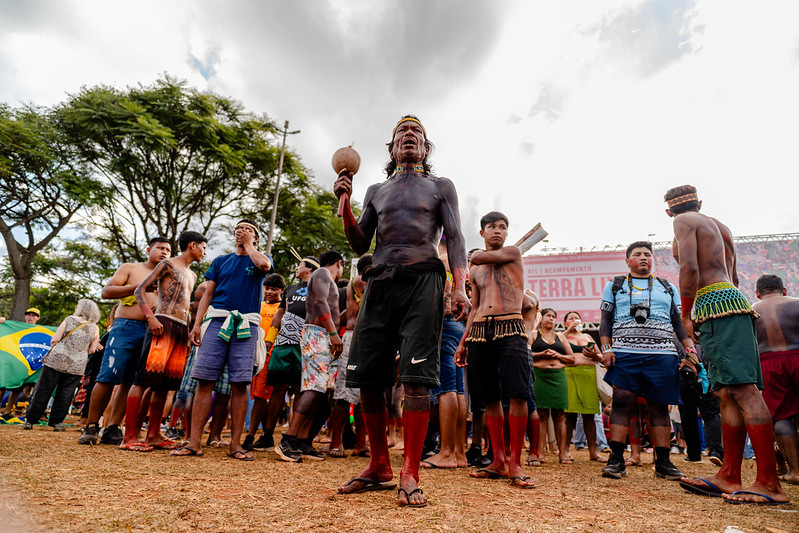Circle of Peoples

Globally, communities that live in close contact with natural environments respond to the impacts of climate change with innovative, adaptable, and diverse practices connected to the land and their culture. The ability of indigenous peoples and traditional communities to create solutions for the future in the face of climate change impacts is increasingly important for building a resilient future.
Several studies show that traditional territories have a high level of environmental integrity and greater protection of natural resources and biodiversity than surrounding areas. By protecting natural environments, these people also protect carbon sinks and ecosystem services that benefit everyone.
As ambition under the Paris Agreement increases, indigenous peoples and local communities are becoming increasingly active in climate policymaking, although in many contexts their role may be under-recognized and underfunded.
The Peoples' Circle promotes dialogue to ensure their qualified representation at the center of COP30 processes and to increase recognition of the role of traditional territories and cultures in combating the climate crisis. It is led by Brasil's Minister of Indigenous Peoples, Ms. Sonia Guajajara, and consists of two commissions:
The International Indigenous Commission is composed of representatives from indigenous organizations around the world and is led by Brasil's Ministry of Indigenous Peoples (Ministério dos Povos Indígenas). It seeks to bring the contribution of these peoples to the COP30 preparation processes and support actions in the pillars of the conference: Mobilization, Action Agenda, Negotiation, and Leaders’ Summit.
The commission's first meeting took place in April at the 24th session of the United Nations Permanent Forum on Indigenous Issues in New York.
The International Commission of Traditional Communities, Afro-descendants, and Family Farmers brings together representatives from organizations in 16 Latin American countries and promotes dialogue with these communities in preparation for COP30. The dialogues are led by Brasil's Minister of Racial Equality, Anielle Franco, with technical support from the Ministries of Environment and Climate Change (Ministérios do Meio Ambiente e Mudança do Clima/MMA) and Minister of Foreign Affairs (Ministério das Relações Exteriores/MRE).
The first official meeting took place in June in Bonn, Germany, during the 62nd Session of the Subsidiary Bodies of the United Nations Framework Convention on Climate Change (UNFCCC).
Among the commission's main responsibilities are the ongoing promotion of dialogue with local and Afro-descendant communities, the discussion of topics such as just transition, financing, environmental defenders, gender, and loss and damage in the context of these communities, the preparation of events, and support for decisions on the four pillars of COP30.
